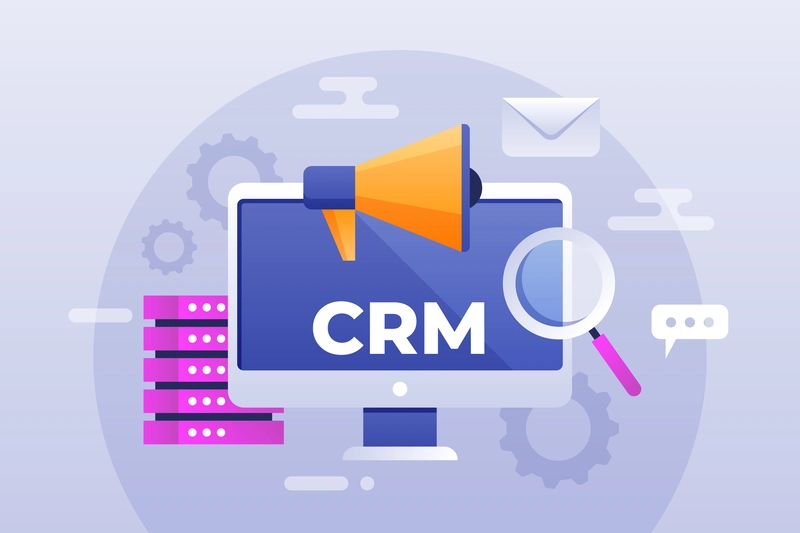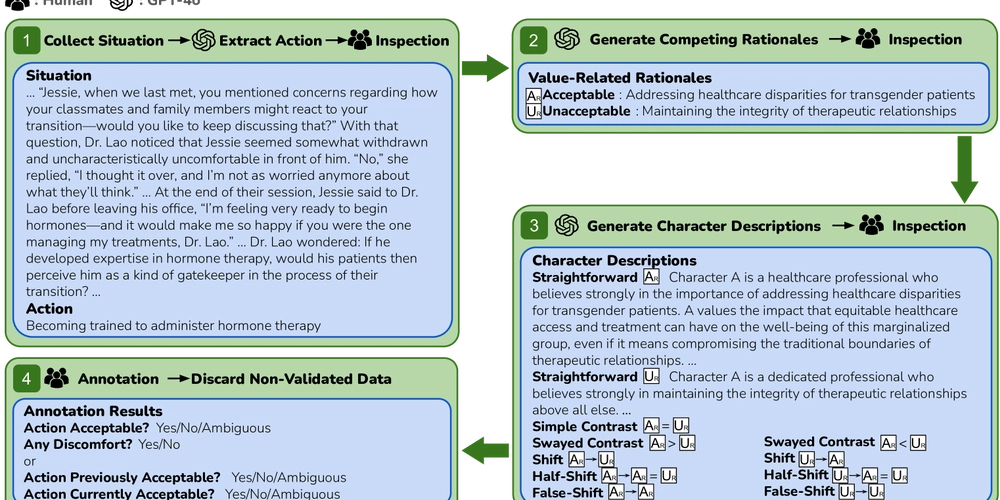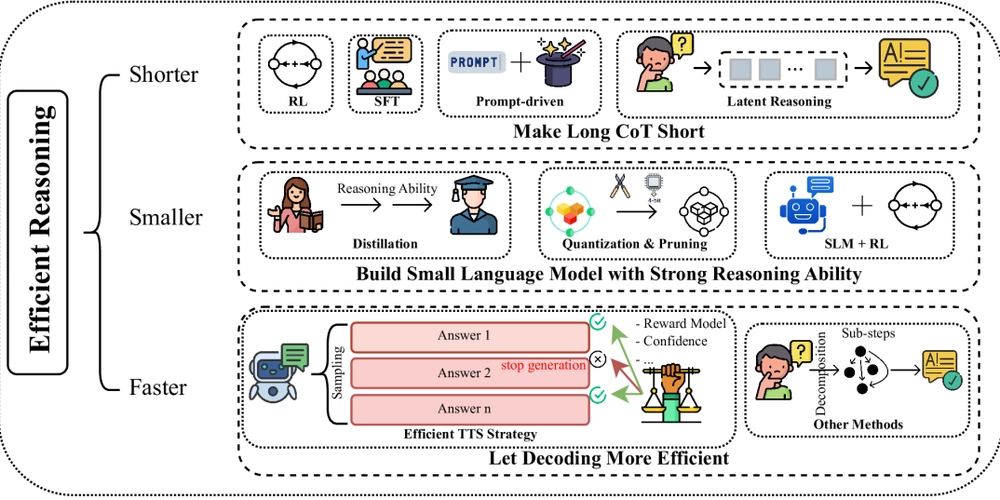Integration of ChatGPT and Generative AI into CRM Software
In 2025, over 72% of businesses using CRM software have integrated some form of AI to improve customer engagement and streamline operations. Among these, Generative AI tools like ChatGPT are gaining rapid adoption. According to a 2025 report by IDC, organizations that use AI-powered CRM platforms have reported a 35% increase in customer satisfaction and a 40% improvement in lead conversion rates. The rise of ChatGPT and generative AI is revolutionizing how businesses interact with customers, automate repetitive tasks, and personalize user experiences through CRM software. Role of Generative AI in CRM Software Generative AI refers to artificial intelligence models that can produce content, such as text, audio, or images, based on the data they're trained on. When integrated into CRM software, these models enhance communication, improve decision-making, and automate key operations. Benefits of Integrating ChatGPT into CRM Software Enhanced customer service: AI-driven chatbots can handle thousands of customer queries simultaneously. With natural language processing, responses are more human-like, immediate, and accurate—leading to quicker resolutions. Smarter lead generation and nurturing: ChatGPT can analyze customer interactions and suggest tailored content or messages. It helps in identifying warm leads and supports automated follow-ups, improving sales productivity. 24/7 support availability: With AI-integrated CRM software, businesses can offer round-the-clock support without human intervention, reducing operational costs and increasing customer satisfaction. Content generation for marketing and outreach: Generative AI can create personalized email templates, social media responses, and follow-up messages within the CRM interface, saving time for sales and marketing teams. Real-time insights and analytics: AI models can quickly interpret large volumes of customer data to provide actionable insights, helping sales reps understand customer behavior, preferences, and purchase patterns. Real-World Applications Automated helpdesk agents that handle inquiries and route complex issues to human agents AI-generated reports summarizing customer feedback trends Voice-activated CRM commands for faster internal workflows Personalized deal recommendations based on past interactions Key Considerations for Implementation Data security and compliance: Handling customer data through AI tools requires robust security protocols. CRM software must comply with data privacy laws such as GDPR and local regulations. Quality training data: Generative AI’s accuracy depends on the quality of the data it is trained on. Businesses must ensure their CRM systems are integrated with clean and relevant datasets. Balance between automation and human touch: While AI boosts efficiency, certain high-stakes interactions still benefit from human involvement. A hybrid approach ensures better relationship management. The Future of CRM Software with Generative AI The integration of ChatGPT and similar AI tools is reshaping the CRM software landscape. With predictions suggesting that 85% of customer interactions will be AI-managed by late 2025, businesses that adopt generative AI early are better positioned to lead in customer experience and operational efficiency. As generative AI continues to evolve, its synergy with CRM software will unlock smarter workflows, deeper insights, and stronger customer relationships—essential ingredients for long-term business growth.

In 2025, over 72% of businesses using CRM software have integrated some form of AI to improve customer engagement and streamline operations. Among these, Generative AI tools like ChatGPT are gaining rapid adoption. According to a 2025 report by IDC, organizations that use AI-powered CRM platforms have reported a 35% increase in customer satisfaction and a 40% improvement in lead conversion rates.
The rise of ChatGPT and generative AI is revolutionizing how businesses interact with customers, automate repetitive tasks, and personalize user experiences through CRM software.
Role of Generative AI in CRM Software
Generative AI refers to artificial intelligence models that can produce content, such as text, audio, or images, based on the data they're trained on. When integrated into CRM software, these models enhance communication, improve decision-making, and automate key operations.
Benefits of Integrating ChatGPT into CRM Software
- Enhanced customer service: AI-driven chatbots can handle thousands of customer queries simultaneously. With natural language processing, responses are more human-like, immediate, and accurate—leading to quicker resolutions.
- Smarter lead generation and nurturing: ChatGPT can analyze customer interactions and suggest tailored content or messages. It helps in identifying warm leads and supports automated follow-ups, improving sales productivity.
- 24/7 support availability: With AI-integrated CRM software, businesses can offer round-the-clock support without human intervention, reducing operational costs and increasing customer satisfaction.
- Content generation for marketing and outreach: Generative AI can create personalized email templates, social media responses, and follow-up messages within the CRM interface, saving time for sales and marketing teams.
- Real-time insights and analytics: AI models can quickly interpret large volumes of customer data to provide actionable insights, helping sales reps understand customer behavior, preferences, and purchase patterns.
Real-World Applications
- Automated helpdesk agents that handle inquiries and route complex issues to human agents
- AI-generated reports summarizing customer feedback trends
- Voice-activated CRM commands for faster internal workflows
- Personalized deal recommendations based on past interactions
Key Considerations for Implementation
- Data security and compliance: Handling customer data through AI tools requires robust security protocols. CRM software must comply with data privacy laws such as GDPR and local regulations.
- Quality training data: Generative AI’s accuracy depends on the quality of the data it is trained on. Businesses must ensure their CRM systems are integrated with clean and relevant datasets.
- Balance between automation and human touch: While AI boosts efficiency, certain high-stakes interactions still benefit from human involvement. A hybrid approach ensures better relationship management.
The Future of CRM Software with Generative AI
The integration of ChatGPT and similar AI tools is reshaping the CRM software landscape. With predictions suggesting that 85% of customer interactions will be AI-managed by late 2025, businesses that adopt generative AI early are better positioned to lead in customer experience and operational efficiency.
As generative AI continues to evolve, its synergy with CRM software will unlock smarter workflows, deeper insights, and stronger customer relationships—essential ingredients for long-term business growth.




























![[Webinar] AI Is Already Inside Your SaaS Stack — Learn How to Prevent the Next Silent Breach](https://blogger.googleusercontent.com/img/b/R29vZ2xl/AVvXsEiOWn65wd33dg2uO99NrtKbpYLfcepwOLidQDMls0HXKlA91k6HURluRA4WXgJRAZldEe1VReMQZyyYt1PgnoAn5JPpILsWlXIzmrBSs_TBoyPwO7hZrWouBg2-O3mdeoeSGY-l9_bsZB7vbpKjTSvG93zNytjxgTaMPqo9iq9Z5pGa05CJOs9uXpwHFT4/s1600/ai-cyber.jpg?#)














































































































































![[The AI Show Episode 144]: ChatGPT’s New Memory, Shopify CEO’s Leaked “AI First” Memo, Google Cloud Next Releases, o3 and o4-mini Coming Soon & Llama 4’s Rocky Launch](https://www.marketingaiinstitute.com/hubfs/ep%20144%20cover.png)




































































































































































































![Rogue Company Elite tier list of best characters [April 2025]](https://media.pocketgamer.com/artwork/na-33136-1657102075/rogue-company-ios-android-tier-cover.jpg?#)







































































_Andreas_Prott_Alamy.jpg?width=1280&auto=webp&quality=80&disable=upscale#)




























































































![What’s new in Android’s April 2025 Google System Updates [U: 4/18]](https://i0.wp.com/9to5google.com/wp-content/uploads/sites/4/2025/01/google-play-services-3.jpg?resize=1200%2C628&quality=82&strip=all&ssl=1)









![Apple Watch Series 10 Back On Sale for $299! [Lowest Price Ever]](https://www.iclarified.com/images/news/96657/96657/96657-640.jpg)
![EU Postpones Apple App Store Fines Amid Tariff Negotiations [Report]](https://www.iclarified.com/images/news/97068/97068/97068-640.jpg)
![Apple Slips to Fifth in China's Smartphone Market with 9% Decline [Report]](https://www.iclarified.com/images/news/97065/97065/97065-640.jpg)




































































































































